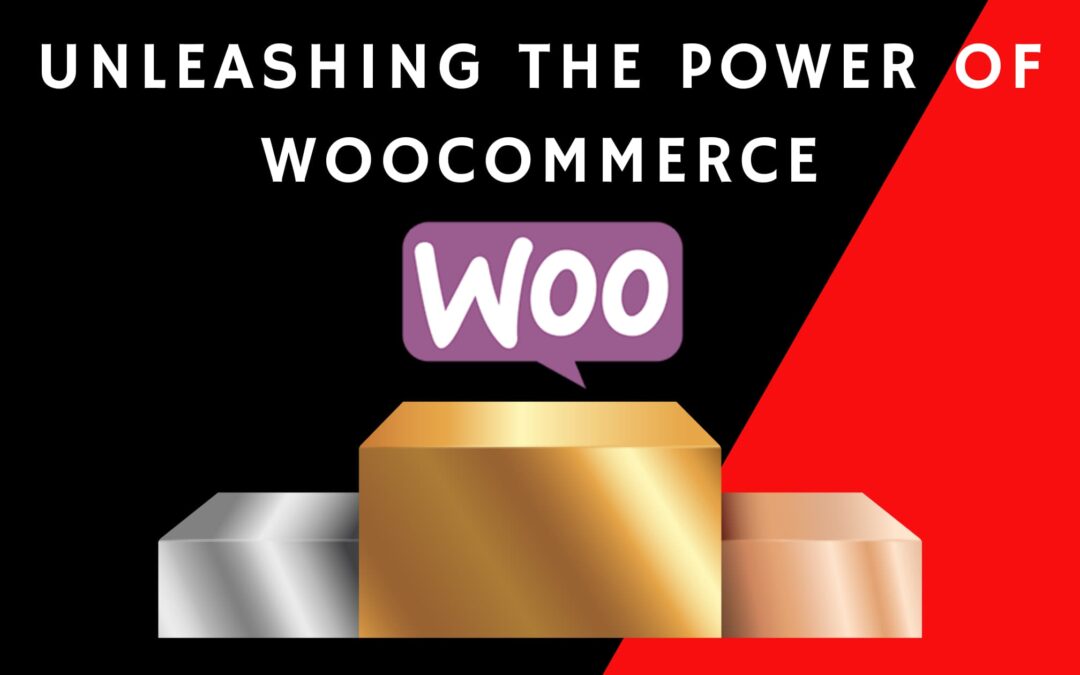In the bustling world of e-commerce, choosing the right platform to power your online store is a decision that can make or break your business. Among the myriad of options available, WooCommerce stands out as a versatile and powerful choice. In this blog post, we’ll delve into the versatility of WooCommerce as an e-commerce platform and compare it to other giants in the field, namely Shopify and Ecwid. By the end, you’ll have a comprehensive understanding of why WooCommerce could be the perfect fit for your e-commerce venture.
Table of Contents
Unveiling WooCommerce’s Versatility
1. What is WooCommerce? WooCommerce is an open-source plugin designed for WordPress, the most popular content management system (CMS) on the web. It transforms your WordPress website into a fully functional online store, enabling you to sell physical and digital products, manage inventory, process payments, and handle shipping, all within the familiar WordPress interface.
2. Flexibility in Design and Customization One of WooCommerce’s standout features is its flexibility in design and customization. With an array of themes and plugins, you can create a unique and personalized storefront that reflects your brand identity. Whether you’re an artist showcasing handcrafted goods or a tech-savvy entrepreneur selling gadgets, WooCommerce’s design capabilities are virtually limitless.
3. Scalability and Growth WooCommerce can effortlessly accommodate businesses of all sizes, from startups to established enterprises. It offers a scalable platform that grows with your business, allowing you to expand your product offerings and customer base without worrying about outgrowing your e-commerce solution.
4. Diverse Payment Options To succeed in the global marketplace, you need to cater to a wide range of payment preferences. WooCommerce supports an extensive list of payment gateways, from PayPal to Stripe, ensuring that your customers can purchase from your store using their preferred payment methods.
WooCommerce vs. Shopify: A Head-to-Head Comparison
1. Pricing and Cost Structure WooCommerce’s open-source nature means it’s free to use, but you’ll need to invest in hosting, security, and possibly premium themes and plugins. On the other hand, Shopify operates on a subscription-based model, with varying plans based on your business needs.
2. Customization and Design While both platforms offer customization options, WooCommerce’s integration with WordPress gives it an edge in terms of design flexibility. Shopify, though user-friendly, might have limitations in achieving unique design elements without coding knowledge.
3. Ownership and Control WooCommerce provides complete ownership of your store’s data and files. Since it’s hosted on your own server, you have more control over security and data management. Shopify, being a hosted solution, means your data is stored on Shopify’s servers, potentially raising concerns about data control.
4. App Ecosystem and Extensions WooCommerce boasts a wide range of free and premium plugins, providing extensive functionality for your store. Shopify’s App Store offers a vast selection too, but you might encounter additional costs as your store’s needs grow.
Ecwid: A Challenger in the E-Commerce Arena
1. What is Ecwid? Ecwid, short for “e-commerce widget,” is another e-commerce solution that allows you to integrate an online store with your existing website or social media accounts. It’s known for its simplicity and ease of use, making it suitable for beginners.
2. Integration with Existing Websites Both WooCommerce and Ecwid offer seamless integration with existing websites, but Ecwid particularly excels in this area due to its widget-based approach. It allows you to add a store section to your website with minimal effort.
3. Store Management and Simplicity Ecwid is designed to be user-friendly and straightforward. If you’re looking for a simple way to start selling online without the complexities of managing a WordPress site, Ecwid might be the better choice for you.
4. Customization and Scalability While Ecwid offers customization options, it might not be as robust as WooCommerce’s capabilities. For businesses with ambitions for extensive growth and unique branding, WooCommerce’s greater flexibility might be more appealing.
Making the Choice: Which Platform Suits You Best?
1. When to Choose WooCommerce
- You want complete control over your website’s design and functionality.
- You’re comfortable with WordPress and appreciate its blogging capabilities.
- Your business has unique needs that require extensive customization.
- You aim for scalability and are willing to invest in development and hosting.
2. When to Choose Shopify
- You’re looking for an all-in-one solution with hosting included.
- You prefer a user-friendly interface and don’t want to handle technical aspects.
- Your primary goal is to set up your store quickly without extensive customization.
- You’re comfortable with the subscription-based cost structure.
3. When to Choose Ecwid
- You have an existing website and want to add an online store easily.
- You’re a small business or individual looking for a simple and budget-friendly solution.
- You’re not interested in extensive customization and prefer a straightforward setup.
- You want a solution that integrates well with social media platforms.
Conclusion
In the world of e-commerce, the versatility of WooCommerce shines brightly, offering businesses of all sizes the tools needed to create powerful online stores. While platforms like Shopify and Ecwid have their own strengths, WooCommerce’s combination of customization, scalability, and control make it a top choice for those seeking a comprehensive and adaptable e-commerce solution. Whether you’re a budding entrepreneur or a seasoned business owner, WooCommerce’s versatility ensures that your online store can evolve and flourish in the ever-changing digital landscape.

